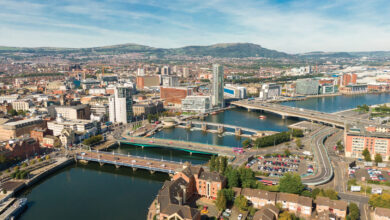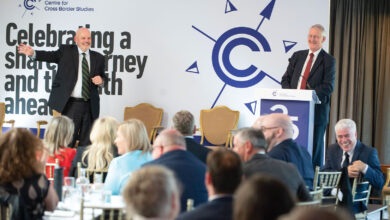Young Enterprise: moving Northern Ireland’s future economy
 Economic growth remains a key priority for the Northern Ireland Assembly. There is no doubt that private sector development is crucial for the future of Northern Ireland.
Economic growth remains a key priority for the Northern Ireland Assembly. There is no doubt that private sector development is crucial for the future of Northern Ireland.
Young Enterprise Northern Ireland, the region’s leading enterprise education charity, partners local business leaders with schools to deliver enterprise programmes to over 100,000 students per year, to inspire the next generation of entrepreneurs.
The good news is that our young people are willing to play their part.
Research has clearly shown that students are keen to develop entrepreneurial skills at an early age. A study conducted on behalf of the charity found that more than three-quarters of those surveyed (85 per cent) would consider starting up their own business if they had the appropriate support.
Local business leaders have a valuable contribution to make, and according to CEO Carol Fitzsimons, it’s a win-win situation.
“There are lots of ways to become involved with Young Enterprise Northern Ireland. As a charity, we rely on financial support, but ‘in-kind’ support through volunteering is just as valuable. In return, we offer local business people a real opportunity to develop their professional and personal skills base, PR opportunities, a practical means of implementing their CSR policy, as well as the satisfaction of playing a role in the future growth of our economy in Northern Ireland.”
Young Enterprise is building an interconnected world of young people, business volunteers and educators, inspiring each other to succeed through enterprise.
Each year, our business volunteers inspire almost 100,000 young people in Northern Ireland aged 4 to 25. With the support of businesses, schools, colleges, and universities, we are the UK’s leading enterprise education charity.
Partner with Young Enterprise and you will be making a positive difference to the lives of young people in Northern Ireland, and building our future private sector.
Y | Get involved
- Increased staff engagement and skills development through employer supported volunteering
- Development of your staff skills base with free training, gaining CPD credit towards many professional memberships
- High-profile PR opportunities
- A practical solution to your organisation’s CSR obligations
- Valuable networking opportunities
For more information visit www.yeni.co.uk or telephone 028 9032 7003






